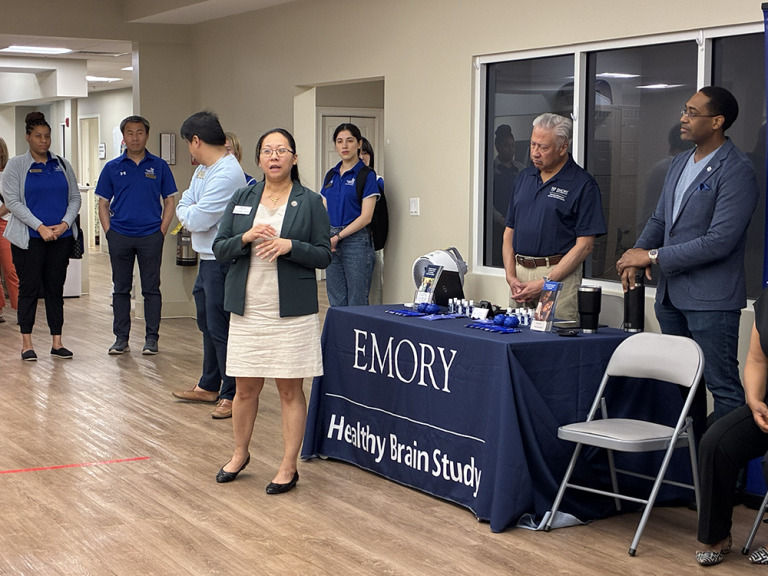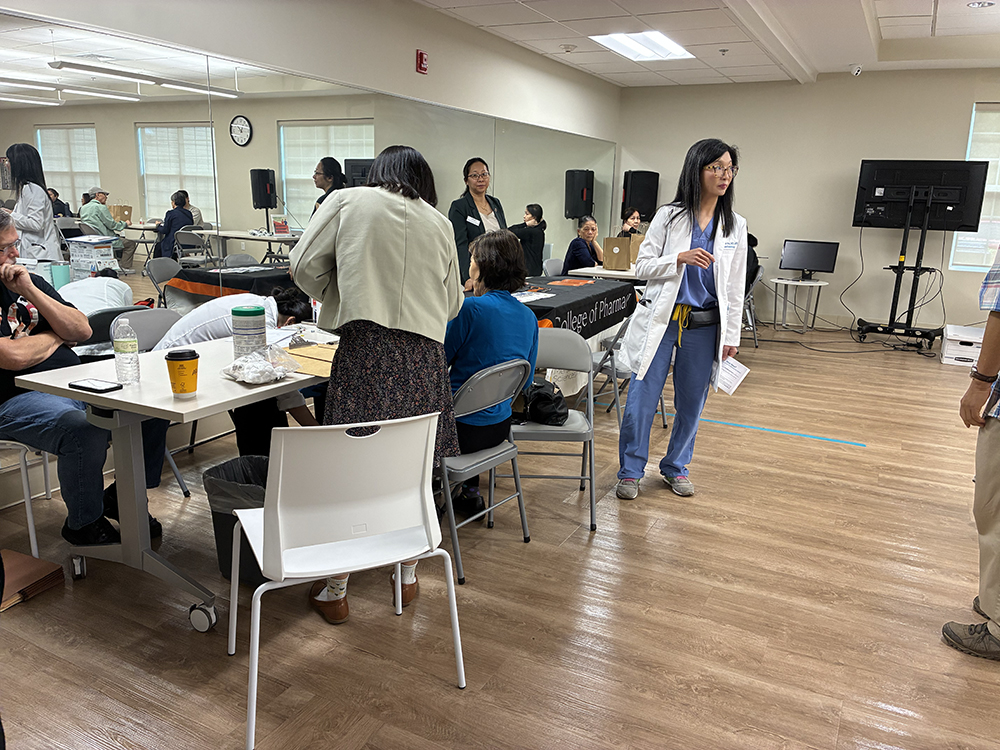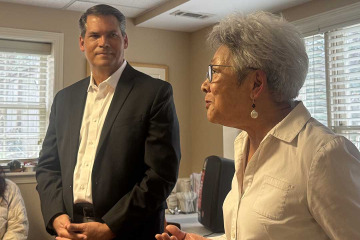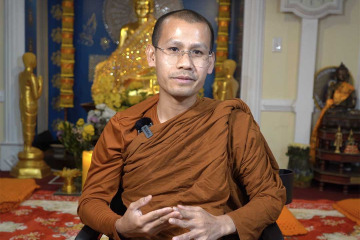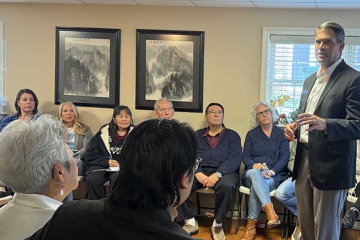Photo: Dr. Vivian Liao from Mercer University College of Pharmacy, speaking with collaborative partner at the AAPI memory screening event.
By Andrian Putra
Duluth, May 5, 2025 – Dozens of community members gathered for a critical health initiative as state representatives, medical professionals, and advocacy groups joined forces to offer free memory screenings and wellness visits to immigrant populations with high rates of Limited English Proficiency (LEP).
The event, supported by Georgia State Representatives Marvin Lim (District 98) and Michelle Au (District 50), brought together experts from Emory Memory Care, Four Corners Primary Care, Georgia State University’s Kinesiology Department (specializing in fall prevention), Walgreens, and the Alzheimer’s Association. Their mission: to bridge gaps in dementia diagnosis and care for underserved communities.
With the help of 12 bilingual interpreters, 49 pre-registered participants underwent memory screenings, while caregivers accessed additional health resources. The event catered to four language groups—Chinese (Mandarin), Korean, Spanish, and Vietnamese—reflecting the diverse needs of the community. Following the screenings, Georgia Memory Net (GMN) recommended 13 individuals for follow-up medical appointments.
Breaking Barriers to Dementia Diagnosis
Dementia affects all communities, but Asian and Hispanic populations face disproportionately low rates of formal diagnosis due to language barriers, cultural stigma, and financial obstacles. Without a diagnosis, families often struggle to access essential support services.
“Dementia doesn’t discriminate by race, but systemic disparities leave many families without the care they need,” said one organizer. Early detection is crucial—research shows dementia develops over two decades, and proactive measures can delay its progression. While there is no cure yet, prevention and early intervention can significantly improve quality of life.
A Commitment to Culturally Sensitive Care
The event’s organizers emphasized that dementia is not contagious and urged those experiencing symptoms not to suffer in silence. The nonprofit CRC (Community Resource Center) continues to provide dementia education and culturally tailored respite care programs for underserved groups.
For more information, contact:
Martina Lee, Dementia Respite Program: mhsl.crc@gmail.com
Su Choe, Dementia Community Education: suchoe.crc@gmail.com
This initiative marks a critical step toward equitable healthcare access, ensuring no community is left behind in the fight against dementia.


